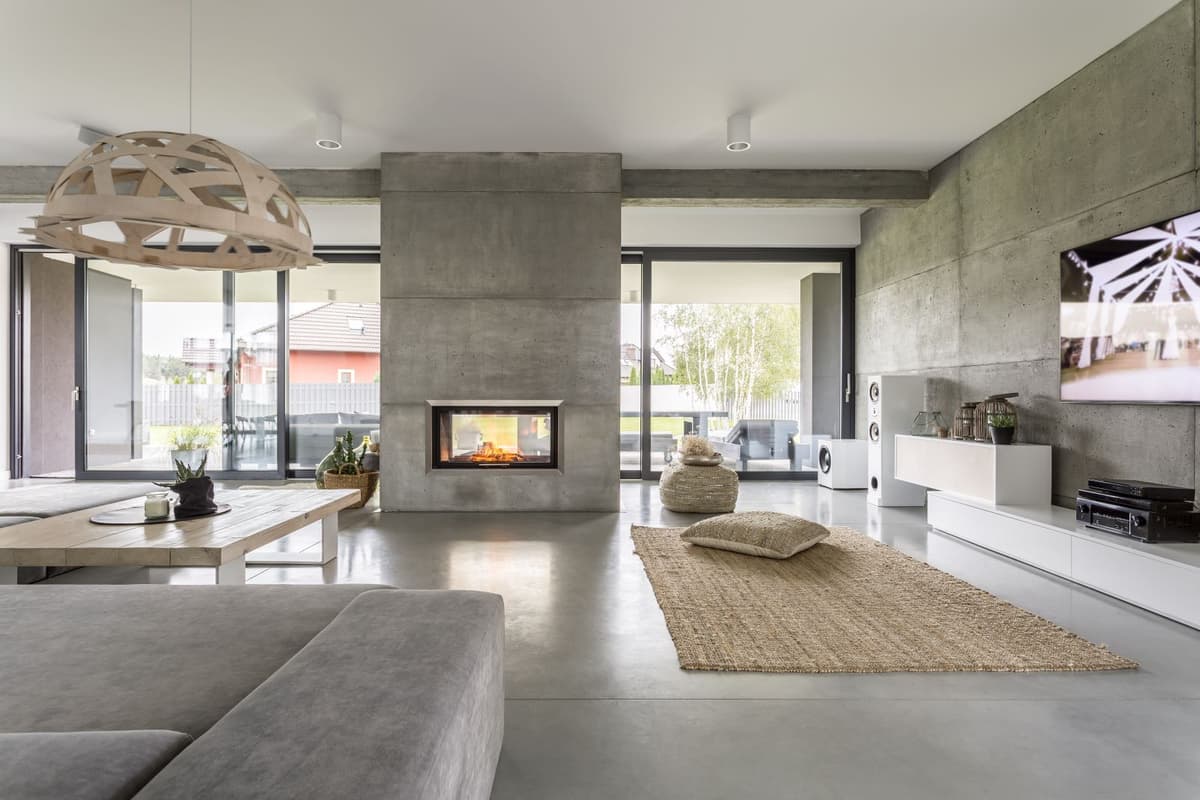Guide To Make Your House Vastu Compliant
Published: 06 June 2023
Your home is where you spend the most time and undoubtedly it has a big impact on your life. When designing your home, it is crucial to remember that there’s a lot more than just picking the right colours and furniture. For a house to become a home you need to make sure that it has the right kind of energy flowing through it.


You may have already heard of the Chinese tradition of Feng Shui, a concept used by designers to create a peaceful ambience in homes for years now. Similarly, there is an ancient Indian design principle religiously followed by lots of Indians for centuries when designing their home and has started to become quite popular in Dubai as well. We are talking about ‘Vastu Shastra’ which translates to the science of architecture.
According to Vastu Shastra, all homes radiate their own energy, and their residents become the recipients of that energy which influences them. Hence following the guidelines of Vastu Shastra ensures that your home is free from negative energy and offers a sanctuary of peace and harmony. It is an ancient guide to a positive home, encompassing everything from its entrance, the living room, bedrooms, kitchen, bathrooms and even gardens.
Vastu-compliant homes are homes that have adhered to the guidelines of Vastu Shastra. In this guide, we dive deep into how you can apply the art of Vastu to your home, along with some Vastu tips to ensure positive vibes throughout your home.
Basic Principles of Vastu
• As per the guidelines of Vastu, the rooms should preferably be in the shape of a square or rectangle. Irregularly shaped rooms or homes with diagonal walls repel peace and harmony in the room.
• The rooms should be well-lit, airy with natural light and free from clutter.
• All heavy furniture such as the bed and wardrobe should be kept in the Southwest direction.
• If you are building a staircase, it is ideal to have it in the Southwest direction as well.
• The dining room or dining space should not be near the main door of the house.
Now let us get into details on how to apply Vastu to different areas of your home.
Vastu for the Main Entrance/ Doorway
Vastu Shastra states that the main entrance to a home is the “archway to victory and progress in life”. The main door acts as not only the entrance for its residents but also as the entry point for energy and vibes.
• As per its guidelines, the main door should be constructed in such a way that when you step out you face the North, East or Northeast direction. Before buying, renting or building a house make sure that its door is facing in one of these directions.
• Make sure the main entrance is well-lit. Entrances that do not receive ample light look dull and unwelcoming, creating a feeling of negative energy. If you stay in an apartment with a dim entrance, try to add artificial light or if structural changes are possible try to build windows that direct light towards that area.
• According to Vastu guidelines positive energies don’t enter homes that have a neglected entrance. Make sure the entrance is always kept clean and well-dusted. This is why it is discouraged to have a shoe rack or a trash bin outside the main door. For the same reason, it is also highly advised to not have a bathroom near the main door.
• The main door should be built with high-quality wood and should be taller than all other doors in the house. It should be the most appealing door in the house. Also, ensure that the door opens in a clockwise direction.
• Another great Vastu tip for a home’s entrance is to place a red doormat. It is believed that the colour red stands for prosperity and is an attractive colour that invites positive energies to the home.
• There should not be any decorative water-centric element outside the main door. You should avoid having a fountain in front of the main door.
• Don’t paint the main door in black.
• Have a beautiful nameplate on your door.
• Don’t place any statues or figurines near the main door.
Vastu for the Living Room/Area
According to the Vastu Shastra, the living room is where the most activity occurs in the home. It usually creates the first impression when guests enter the home and are advised even by most interior designers to keep it clutter-free.
• Based on its principles, the living room should face East, North or Northeast. Alternatively, a Northwest-facing living room/area is also acceptable.
• All the heavy furniture in the living area such as the sofa must be placed in the West or Southwest direction of the room.
• If your dining area is a part of your living room, you should have the dining table in the East or Southeast direction of the room.
• All electronics and appliances such as your TV should be installed in the Southeast section of the living room.
• Any mirrors in the living room should be placed on the North wall.
• The Vastu guidelines have stated specific colours for each room of the house with the intention of trapping positive energies. For the living room, light colours are advised such as shades of white, cream, beige and light pink. These colours are associated with different positive vibes and help foster good energy in the room.
• Regarding artworks, Vastu clearly states that paintings that depict negative or sad scenes like a crying child, sad face, and sinking ships can foster pain or sorrow in your mind. Hence one should avoid displaying any such art in any areas of the home. Vastu rather encourages the use of nature-inspired artworks, as they bring an element of positivity to the home.
• Similarly, electronic appliances that are not working must be fixed or discarded, this includes clocks and other home appliances. Broken décor pieces, photo frames, and mirrors with cracks should all be discarded as they attract negative energies and bad luck to the home.
Vastu for the Bedroom
Vastu believes that tweaking your bedroom can attract positive energies and even improve relationships between couples. If not done the right way, the bedroom can cause difficulties in your personal life, leading to a low quality of health and may also hinder your prosperity.
• Vastu advocates for all bedrooms or at least the master bedroom to be in the South-West direction. This is said to bring good health and prosperity to residents. The bed should be placed in the South-West corner with your head facing West. A bedroom in the North-East or South-East zone of the house is highly discouraged as the former may cause health issues while the latter may cause quarrels among couples.
• Use plain or light-coloured sheets in shades of white or brown as they help ground and relax your body. Avoid using too many geometric prints or blue/black coloured sheets in the bedroom.
• Choose a bed with no storage underneath as it is believed that storage under the bed disrupts the energy field resulting in disturbed sleep.
• The walls of the bedroom should be painted in neutral or earthy tones as it is said to radiate positive energy. Painting the walls black is not advisable.
• Avoid placing any type of mirror or reflective surface like a TV in front of the bed. If there are any, it’s a good idea to cover them up with a cloth before going to sleep. Vastu dictates that your reflection must not be seen in a mirror while sleeping or when waking up as it causes fights and other disruptions.
• Vastu also suggests that one must never have their head pointing towards the North. This is primarily due to the North being a positive direction and the crown chakra above our head is also positive and when two positives interact, they give out a negative vibe. It is believed that sleeping in this direction leads to bad dreams and drains energy. You must also make sure you are not sleeping in a position where the door is in front or behind you. This is considered to lead to deterioration of health.
• Do not place any sort of water feature in the bedroom such as an aquarium or even paintings depicting water. Water is never still, and it is believed its depiction in the home could lead to emotional outbursts.
• Using mood lighting and burning aromatic oils and candles is encouraged. Try a blend of rose and jasmine oil as it can help induce sleep and relaxation.
Vastu for Dining Room and Kitchen
• If you have a separate dining room, you must try to have it in the West zone of the house. If it is not possible, you can opt for the North, East or South zones of the home. Avoid the Southwest direction as it does not comply with Vastu guidelines.
• The ideal place for the kitchen is in the Southeast corner of the home. Avoid having the kitchen in the Northeast or Southeast corners. Like the living room, all appliances should also be kept in the southeast direction.
Vastu for Bathroom
Designing your bathrooms as per Vastu guidelines is as crucial as the rest of the areas of the home. Having a Vastu-compliant bathroom is said to remove negative energies and improve well-being.
• The best area for the bathroom is in the Northwest zone of the house. The Southwest zone must be avoided when constructing a bathroom.
• The toilet entrance should always be along the Northern or Eastern wall.
• If the bathroom has a window, it should be along the West, East or North.
• The mirror, sink and shower should both be placed in the East or North direction.



